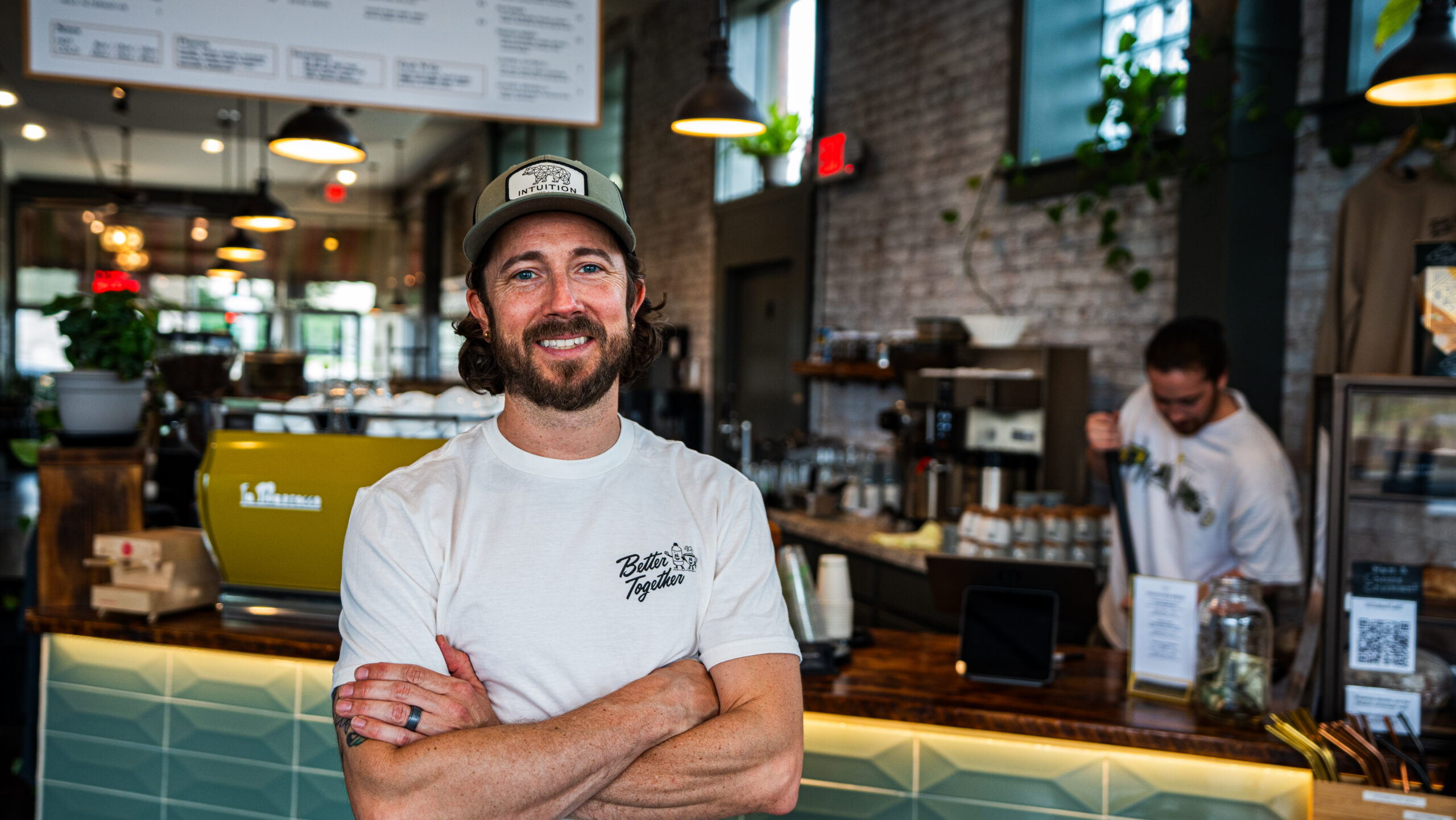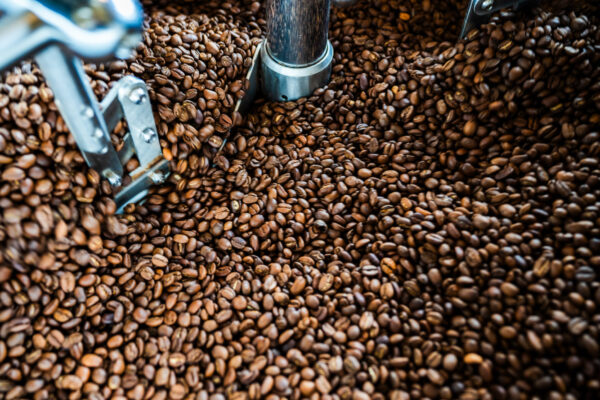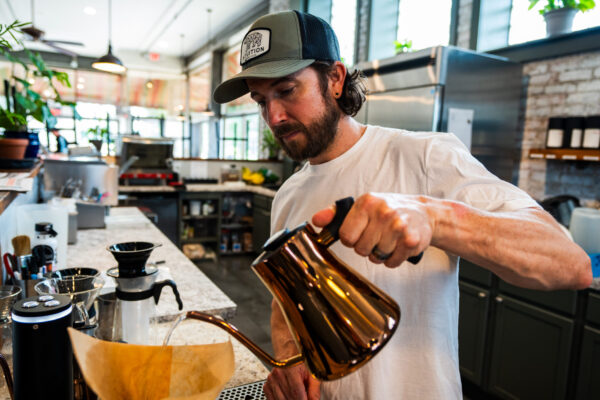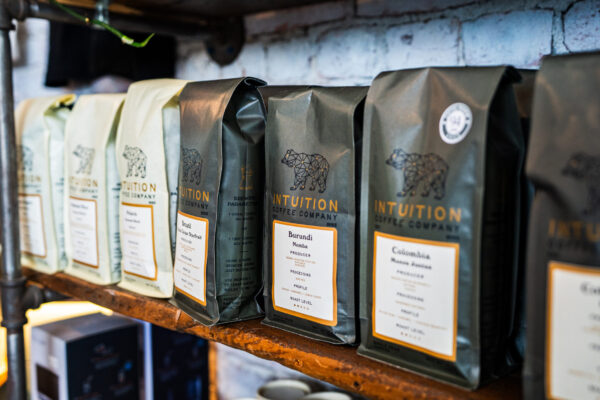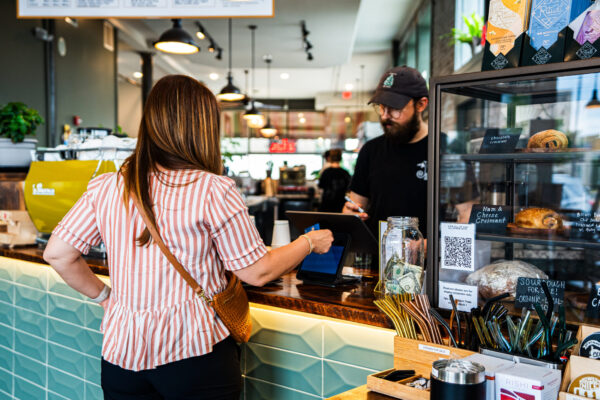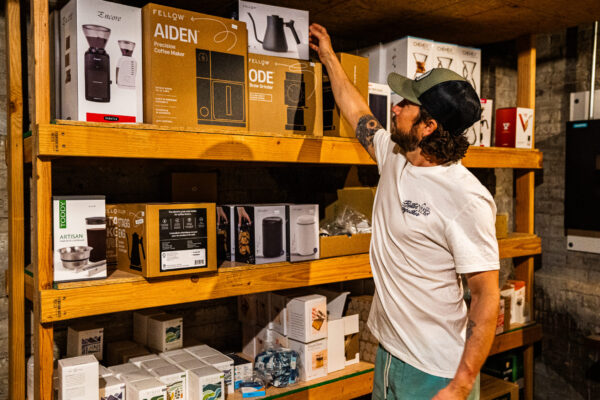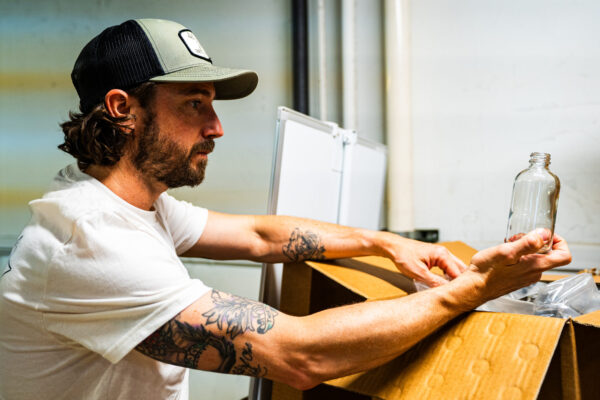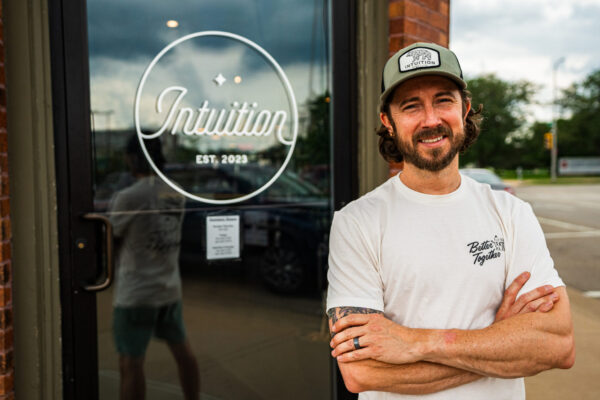The increased costs associated with tariffs impact all of us, affecting millions of people. Retailers of all kinds across Illinois import many of the goods they sell. Tariffs have created more uncertainty for retailers than many have ever experienced. The Illinois Retail Merchants Association has found that while retailers are trying to hold-off on price increases, it’s impossible to absorb the extra expenses for numerous business owners who function on very small margins – which forces consumers to pay more.
Retailers like Ty Paluska, owner of Intuition Coffee + Juice in Peoria, enrich our economy and strengthen our communities, even during the uncertainty of increased tariff expenses. To better understand how Intuition Coffee + Juice is dealing with the escalation of existing tariffs, we sat down for a conversation with Ty.
Colombia. Nicaragua. Kenya. Tanzania. Indonesia. Brazil. The caffeinated reality is that coffee is overwhelmingly an imported product with more than 99% of the beloved crop shipped to the U.S. from a foreign country. And what little bit of coffee is grown domestically is produced in Hawaii.
Thousands of miles from the source of the coffee sold at its store, Intuition Coffee + Juice in Peoria has built a loyal following of java aficionados in its two years of operations, in large part because of its wide range of far-ranging brews.
“Intuition Coffee + Juice is a coffee shop focused on sustainability, hospitality, positive vibes and great coffee. We also do a lot of cold-pressed juice and healthy eats,” said shop owner Ty Paluska, who returned to his hometown to open this coffee concept, which also operates as a wholesale roaster of international beans.
These days, Ty is forced to navigate a buying landscape that is far more bitter than a dark roasted Robusta, which is notoriously known as the sharpest of all coffee beans. As Ty noted during our conversation, coffee shops nationwide are caught in the crosshairs of the tariff battle, perhaps more profoundly than any other retail sector.
IRMA: As a coffee retailer and wholesaler, how hard have new tariffs impacted your store?
TY: These tariffs right now are very hard. Coffee is already sort of in crisis. The cost of coffee is already high this year as compared to most.
IRMA: Why is the industry in crisis?
TY: The coffee industry is already in crisis mainly because of climate change. You’re seeing a lot of drought. You’re seeing a lot of rain or not enough rain in different parts of the world. So, it’s affecting the overall production of coffee. What producers may have been able to produce at 100% a year are now producing maybe only 80% of that coffee.
IRMA: But demand is still high, correct?
TY: There are still a lot of people who want great coffee, but there’s only so much available. And so, you have the same demand or if not more, but less supply, so there’s a spike in the price. My coffee costs have gone up 50% this year. And that’s not including tariffs.
IRMA: What do new tariff costs do to the price of coffee?
TY: So, tariffs are another 10% on top of your FOB (Free On Board) price. So, that’s the price that’s shipped to us. We’re seeing a major impact and that’s just on coffee. That doesn’t include tea. Tea is also not grown here (in the United States), and we’re also in the tea business. Our packaging from sustainable goods to equipment, all that kind of stuff is also impacted by these tariffs.
IRMA: What else is being impacted in your store?
TY: The biggest impact obviously right now is coffee. That’s the business I’m in. As a wholesaler, I’m having to unfortunately pass those higher prices on to my wholesale partners. It’s not just me. Any coffee roaster out there is going to have to be adding these costs on. So, any small cafe, any restaurant, any grocery store is going to see a price increase this summer and into next year as a fresh crop (of coffee beans) starts to arrive.
IRMA: So, the costs of these tariffs are actually compounding?
TY: Yes, because we’re not just a retail café at Intuition. We’re a wholesaler. We’re getting beans from Colombia, Nicaragua, and Kenya. Places all over Latin America, Africa, Indonesia. That means we’re supplying coffee to the local grocery stores, to the other local mom-and-pop cafes out there. Now, they’re taking that cost that I have to increase for them and then they need to make their same margins, which is not very much as a small business. Our margins are very thin as well. In the end, all those costs pass that on to the customer.
IRMA: For millions of Americans, coffee is “their thing.” Have you thought about the scale of this?
TY: Yes. I think about the scale of this all the time, because coffee is like this the American thing, right? We want to drink our coffee. Everyone drinks it, but it can’t be grown here. This should be a universal, like, “Hey, don’t touch my coffee!” Now we’re (the government) are touching your coffee by adding tariffs to the beans affecting your price. And it’s going to be more difficult for all of us as consumers just to drink the same cup of coffee we’ve been drinking.
IRMA: What will customers do? Is there a tipping point?
TY: So, where does a cup of coffee become something that somebody can’t afford? We all want coffee. We all want to come in each and every day, have that experience, so we can feel a little better about our day and move on to our work or home or wherever. But where’s that tipping point? Maybe you’re not coming in every week now. You’re coming in twice a month, and that’s ultimately going to affect us as a small business. And that’s going to have a spiral effect, where at some point someone’s not going to be able to make it anymore. If the cost becomes prohibitive and people don’t come in for that cup of coffee, then the shops close.
IRMA: Are you able to keep some costs under control?
TY: There are a lot of things that we’re trying to do to mitigate costs the best we can, but at some point, there’s only so much you can do. I just bought $10,000 worth of cups and lids from our BPI certified manufacturer (Biodegradable Products Institute) in order to save the 10%. I was able to cut my costs from shipping, but I’m just breaking even. I’m not saving any money. I just offset the tariffs. But, I had to spend $10,000, which, as a small business, affects my cash flow. And so, it makes it even harder for me to get by week-to-week.
IRMA: How about for your wholesale customers?
TY: For my wholesale customers, I’m doing my best to find ways to mitigate these costs to the best of my ability. Instead of going to a domestic supplier that was buying their product from China and then giving it to me, I went right to Shanghai to buy my product. A little bit scary, a little bit riskier maybe, but it’s saving me a little bit of money, and then I can help offset that big 50% increase. I’m talking about perhaps maybe where I’m only passing on 35% more onto my customer, but at the end of the day, it’s all still going to be expensive.
IRMA: How are tariffs impacting your philosophy of being sustainable and environmentally conscious?
TY: It’s one thing that I care about a lot as a person and also as a business. I want to change how hospitality businesses treat waste. So, I’m very committed to sustainability. I’m using glass for my juice versus plastic. Most places would use plastic. I’m using BPI certified compostable products. That way it can be composted and go back to the earth. All of those things are skyrocketing in price because of tariffs. So, it’s making my values for sustainability and environment even harder to follow, because it’s tempting to want to go buy the cheap crap that isn’t compostable or that it’s plastic. I hate that. It makes me upset that I can’t do what’s good for the earth and my children.
IRMA: This must be frustrating for you?
TY: I’m upset. I feel like I’m just taking it and screaming. I’m trying to just make it. It’s already hard enough as it is being a small business owner. And then I have to add these tariffs back on to this? It just feels like you’re getting kicked while you’re already down.
IRMA: What message would you like to convey to politicians whether they’re state or federal?
TY: To the politicians out there, I want to tell you we need your support. Small businesses are the backbone of cities all across America. This is making it so hard for us already. I know all the politicians are out there drinking coffee. That’s how you survive. That’s how you get through your day. Wouldn’t it be a shame if on your next visit to the area you represent, you can’t find your favorite coffee shop anymore because it’s gone out of business due to higher prices? It’s not that far-fetched to think that this is going to be happening over the course of this next year because of these tariffs.
To learn more about Intuition Coffee, visit www.intuitioncoffee.com.
